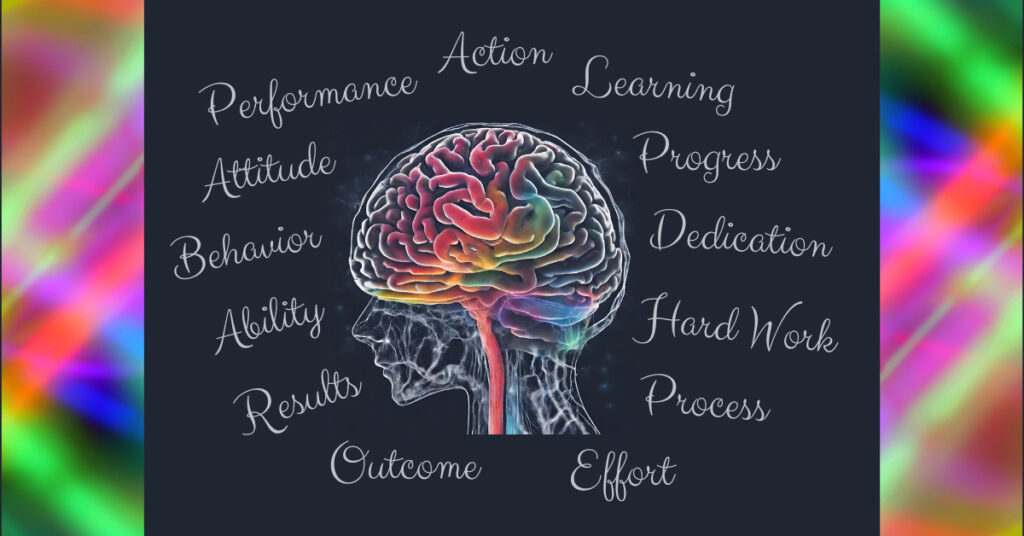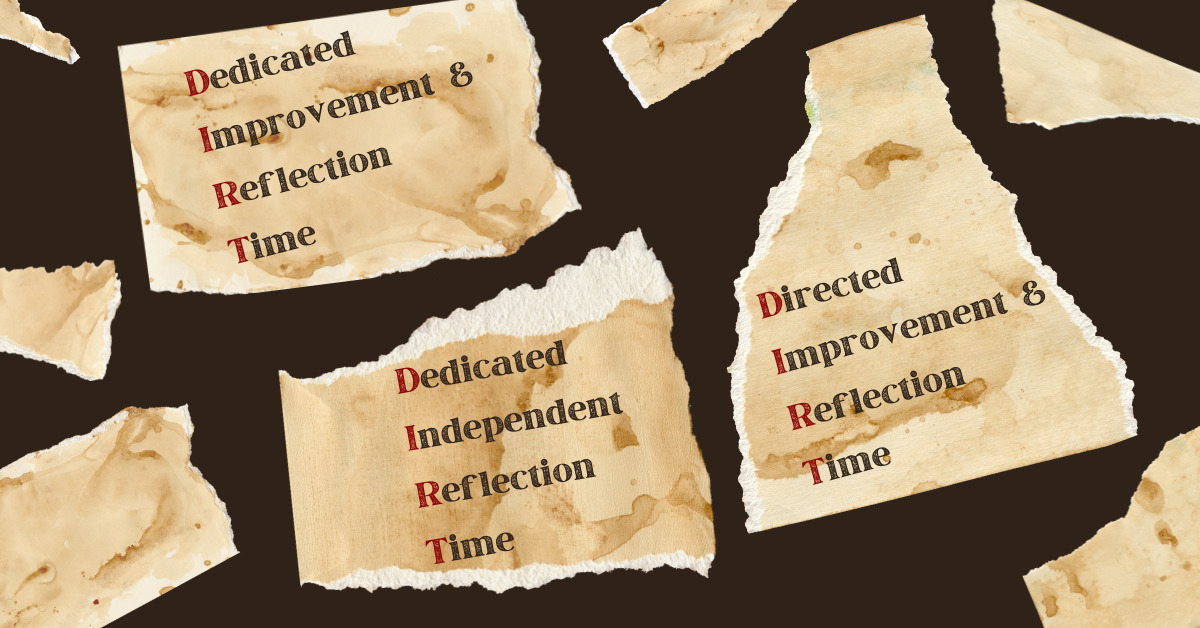In a world fixated on results and success, it’s easy to lose sight of the importance of the journey. The emphasis on outcomes often overshadows the value of the effort invested in any endeavor. However, a shift in perspective towards rewarding effort is powerful, profoundly affecting personal growth, motivation, and overall well-being.

Shifting Our Mindset
In our achievement-oriented culture, success is often measured solely by the end result. Whether it’s acing an exam, securing a job, or winning a game, we are conditioned to celebrate the destination rather than the path taken. This mindset, while promoting ambition, can inadvertently lead to stress, fear of failure, and a lack of appreciation for the learning process.
When we shift our focus from the outcome to the effort, a remarkable transformation occurs. The journey becomes a source of intrinsic motivation and fulfillment. By recognizing and celebrating the dedication, hard work, and perseverance invested in a task, we cultivate a positive mindset that extends beyond success and failure. Following Foundation Education’s suggestion, we want to use rewards to inspire interest and cultivate a positive mindset, leading to enhanced effort and eventual results.
Consider Different Mindsets
Rewarding effort promotes the development of a growth mindset – the belief that abilities can be developed through dedication and hard work. In contrast to a fixed mindset, which sees abilities as inherent and unchangeable, a growth mindset fosters resilience and a willingness to embrace challenges. In her article, “What Having a ‘Growth Mindset’ Actually Means,” Carol Dweck highlights that we all possess both fixed and growth mindsets. Embracing these mindsets is essential for fostering productive learning.
Effort holds the potential to propel continuous improvement and personal development, but it’s crucial not to overlook the process. As Dweck elucidates, it’s essential to reward not only effort but also learning and progress, highlighting the processes that contribute to these advancements. This includes seeking assistance from others, experimenting with new strategies and techniques, and leveraging setbacks as opportunities for effective forward momentum.
By accentuating the processes, we validate the actions of children, aiding them in recognizing the effort they invest in their tasks. The ultimate result is the positive outcome derived from this dedicated effort. Shifting our mindset and implementing an effective reward system that prioritizes effort over outcome helps encourage children to aspire for their personal best.
For a more in-depth understanding of the mindset concept, read Carol Dweck’s insights in Mindset: The New Psychology of Success.

Praise as a Reward
A simple yet effective reward is praise. Praise, when delivered thoughtfully, acts as a positive reinforcement that goes beyond the immediate moment of recognition. It instills a sense of accomplishment, validating the effort and dedication invested in a task. However, for praise to be effective, it needs to be specific and sincere.
In the research study, “Effects of Ability and Effort Praise on Children’s Failure Attribution, Self-Handicapping, and Performance,” findings revealed that children commended for their ability were more likely to attribute failure to a perceived lack of ability and linked failure to self-handicaps such as test anxiety. On the other hand, children who received either no praise or praise for their effort associated their efforts with successful performance. Surprisingly, even those praised for effort still tended to attribute failure to self-handicaps. This emphasizes the significance of providing informative feedback, suggesting that children might unintentionally link effort praise with inherent ability. Therefore, it becomes imperative to discern and distinguish between praise for effort and praise for ability.
Insightful feedback proved instrumental in students recognizing the significance of effort over ability. This highlights the importance of linking praise with hard work. Consequently, when offering commendations for effort, it becomes essential to accompany them with detailed information about children’s academic and behavioral performance. This approach aims to assist children in comprehending the nature of effort and how to effectively apply themselves.
Effective Praise
Like many aspects of life, praise comes with potential downsides. Therefore, selecting suitable forms of praise becomes crucial to inspire children in their learning and growth journey while fostering the development of intrinsic motivation. Gwen Dewar from Parenting Science advises supporting and encouraging children, steering clear of insincere praise, minimizing extreme praise, refraining from applauding simple tasks, associating praise with controllable actions, restricting praise for activities already enjoyed by children, and avoiding comparative praise.
Numerous forms of praise have been explored in Miriam Ferguson’s article, “Praise: What Does the Literature Say? What Are the Implications for Teachers?” However, the crux of effective praise lies in its relevance and purpose. It’s crucial to ascertain that the child receiving praise is receptive to that specific type of acknowledgment. Additionally, the use of strategic praise is essential, as it contributes to the development of social, emotional, and behavioral competencies.
Precise and sincere praise is essential. For example, opt for expressions like “I appreciate the effort you put into solving that math problem” instead of a generic “Your math work looks good.” Ensure that your words are genuine, reflecting your true interest in the child. Highlight specific strengths that provide concrete feedback, aiding children in recognizing the skills and abilities they can draw upon during challenging moments.

Other Types of Rewards
Numerous rewards other than praise can be employed to motivate children. Prior to introducing rewards or incentives, it’s crucial to establish a well-thought-out reward system. I recommend exploring “How to Create an Effective Reward System for Kids” to grasp the fundamentals of a reward system and gain insights into its successful implementation. Once the groundwork for the reward system is laid, the enjoyable task of selecting appropriate rewards can begin.
When selecting rewards, consider creating a list of potential options. Encourage your child to contribute suggestions, and include rewards that are simple to implement. Explore activities that you can engage in together, fostering a bonding experience simultaneously.
Explore a multitude of ideas and let your creativity flow! If you’re seeking inspiration, take a look at my family’s list below or peruse the reward ideas crafted by Very Special Tales.
- Choose the card or board game for family game night
- Choose a special snack from the store
- Stay up later (15 minutes on school night, 30 minutes on weekend)
- Choose the movie for family movie night
- Get a drink from a local coffee shop
- Choose a special item with an established maximum amount from the store (e.g., yo-yo, frisbee, pool toys, game, Lego set)
- Choose restaurant for a dinner out
- Go to trampoline park or skating rink
- Get one candy item at the store
- New pair of fun socks (only one son wants this)
- Robux for the Roblox game (only one son wants this)
- Playing a game with mom or dad (this is a game not normally played)
The list doesn’t need to be comprehensive. Feel free to add more or modify it as your child’s interests evolve.
Final Thoughts
In a society that often fixates on outcomes, let’s shift our mindset towards rewarding effort as a route to success. By embracing the journey and valuing the dedication put into every task, we pave the way for personal growth, resilience, and intrinsic motivation. It’s time to redirect our attention from the destination to the path, understanding that the genuine reward lies not just in success but in the transformative impact of sustained effort.
Remember that there is power in properly implementing rewards. Help your children learn and grow through Adhere to these practical strategies for the successful execution of rewarding effort.
Practical Strategies for Rewarding Effort
- Celebrate Progress: Acknowledge and celebrate small victories along the way. Recognize the effort put into overcoming obstacles and making progress, regardless of the final outcome.
- Provide Constructive Feedback: Offer feedback that focuses on the effort and strategies employed rather than simply the end result. This helps individuals understand the value of their hard work and encourages a growth-oriented mindset.
- Set Process-Oriented Goals: Encourage the setting of goals that emphasize the journey rather than the destination. Process-oriented goals focus on the steps taken, fostering a sense of achievement and satisfaction throughout the entire endeavor.
- Encourage Reflection: Create opportunities for individuals to reflect on their efforts and the lessons learned. This reflective practice reinforces the idea that the journey is an integral part of the overall experience.







